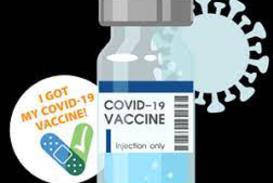Healthcare Medical Pharmaceutical Directory.com
Surgery Centers
Business Trends...
- Surgery centers experiencing increased private equity investment plus acquisitions by hospitals and health systems
- 2021 sees a business rebound for surgery centers pending a swift rollout of COVID-19 immunizations as more vaccine doses become available and surgical centers can function with less clinical and cost burdens
- Scroll down for essential insights on the surgery center healthcare business sector and its leading contenders
Surgery Center Market Sector Overview
Surgery centers (also known as surgical centers, ambulatory surgery centers, outpatient surgery centers, day surgery centers) can support an array of procedures. There are approximately 9,200 surgery centers of various specialties across the United States. These are 8 of the most common procedural specialties performed in surgery centers:
- Cholecystectomy ( gall bladder removal )
- Ear, nose, throat ( ENT )
- Gastroenterology ( endoscopy, esophageal diagnostics and repair including stretta for GERD or LES, HALO ablation, hemorrhoid banding, hernia repair, sigmoidoscopy )
- Nerve treatment ( compressed nerves, carpal tunnel syndrome )
- Ophthalmology ( cataract removal )
- Orthopedics ( ankles, wrists, hands procedures; minor knee and meniscus repairs )
- Skin therapy ( mole removal, skin cancer, melanoma )
- Urology (cystoscopy, transurethral resection of bladder tumor (TURBT) and transurethral resection of the prostate, uretoscopy, vasectomy )
Surgery centers have run a circular growth path. Originally, many were developed as venues for highly specialized procedures. Then physicians and their business partners embraced them as investments. They were a way to grow personal income and practice medicine according to their own protocols -independent from the hospital business environment and administrative politics. They are known by a variety of names depending on facility and business model; this includes surgery or surgical centers, surgicenters, outpatient surgery centers, ambulatory surgery centers ( ASC ), same day surgery or day surgery providers. Shelter-in-place and other precautions triggered by the pandemic in 2020 drastically reduced revenue but 2021 could see this turnaround if the pandemic subsides.
The Surgery Center Patient Care Concept Has Driven Transformation In Medical Procedure Care And Costs
Several changes and events have triggered a wave of transformation and competition:
- As surgery professionals grew more comfortable conducting procedures outside the hospital, the variety of patients/procedures widened; quality monitoring oversight by the Centers for Disease Control and Prevention ( CDC ), Office of Inspector General ( OIG ) and other regulatory agencies followed this trend
- To increase revenue and maximize utilization of operating suites, specialized surgical centers redefined themselves to accept a greater variety of patients and procedures based on reimbursement changes and guidance from CMS
- Advances in surgical technique, drug therapies and technology have enabled more complex, varied procedures to take place safely outside of the hospital setting
- The segment grew with development of regional chains of multiple surgery centers and professional management companies partnering with surgery center owners to assist in billing / contracting with managed care organizations and healthcare systems
- Due to facility efficiencies and specialized business practices, they were able to perform procedures at less cost than hospitals; managed care recognized their economic value and began steering patients to them and readily reimbursed surgeons for procedures conducted there
- In some cases, hospitals have competitive issues with surgery centers if the surgery centers are taking on procedures which offer more margin -this siphons profit away from hospital revenues
Presently, as healthcare systems compete and seek additional streams of revenue, many are opening their own de-centralized surgical centers or acquiring those which are privately held. Tenet and HCA have expanded into this area. This enables them to have a longer length of direct access to revenue streams through the continuum of care offered to patients under managed care plans. Should the pandemic
Surgical Center Entrepeneurship
Growth of independent surgical centers continues through highly specialized providers of care such as Vein Clinics of America, Illinois Bone & Joint Institute, Physicians Endoscopy or Southwestern Eye Center. These venues offer highly specialized care at competitive costs outside of large scale healthcare systems. Moving forward in 2019 and 2020, CMS is drafting new proposals to add as many as 142 medical-device driven surgical procedures to their list of approved ( reimbursed ) patient care services for ambulatory surgery centers.
In January, 2017, UnitedHealthcare (UHC) announced it was acquiring surgical center chain Surgical Care Affiliates (SCA) for $2.3 billion. SCA operates over 200 surgical facilities with more than 7,500 physicians. The facilities conduct about 1 million procedures annually. This is part of UHC's ongoing initiatives to change its business model beyond being a healthcare plan to encompass being a healthcare provider organization; its Optum business unit plays a pivotal role.
As other plans, such as Anthem and Aetna, have chosen to expand their covered lives, UHC has chosen a different route. By acquiring medical practices, UHC has more direct influence on providers, care protocols and costs associated with them. By adding SCA to the combination of other medical group practices they own, it provides different streams of revenue for UHC. It also improves their position to negotiate rates with hospitals, health systems and other providers of surgical procedures.
Surgery Center Competition, Regulatory, Staffing And Technology Challenges
While surgery centers benefit from increased patient volume, they have significant operating hurdles to overcome:
- Depending on the marketplace, the outpatient surgery patient care can be extraordinarily competitive. Hospitals and health systems are trying to maintain caseloads for their conventional surgical suites and for those based in outpatient surgery venues which may or may not be located on the main campus of a hospital. Independent surgery centers are competing against hospitals and health system as well as other independent surgery centers. Some surgery centers ramp up their equipment and professional staff to take on a wider selection of advanced procedures, others try to maximize organizational efficiencies to provide the highest level of care at a lower operational cost. Regardless, all of these stakeholders are vying for patients and the favoritism of payers that reimburse them.
- Regulations at the local, State and Federal level can add a great deal of burden on outpatient surgery operations. Compliance is critical to continue to serve patients and be compensate by payers. Surgery centers need to closely monitor changes in laws and policies. An array of variables are in play including staffing, credentialing, documentation, billing, training, patient volume and other clinical and commercial aspects of surgery center operation. While it is understood the measures are generally intended to increase patient care and safety standards while lowering costs, they can have a disruptive effect on surgical center administrative and medical processes.
- Payers such as managed care organizations, health insurance plans and the Federal government are channeling more patients to surgery centers but reducing the reimbursement for care. This is especially concerning in that surgery centers are conducting more advanced procedures which require more highly trained staff, require advanced devices and equipment as well as more time. These add up to more costs for the surgical center operator to manage more carefully so as to still make profit despite receiving less from payers.
- Technology advances are beneficial to them but require financial investment; especially if they are EHR / EMR programs, robotic surgery platforms or advanced imaging technology. Any investment in technology has to be carefully weighed; compliance mandated purchases come first and those involving robotics, imaging and other advanced patient care applications must demonstrate improved patient and ROI performance.
- Support staff, including nursing, surgeon assistants and even administrative staff are not always easy to recruit or retain. Not having enough staff can force a surgical center to reduce the number of patients and procedures they can undertake. Training of new staff is costly and time consuming.
Pharmaceutical, Medical Device, Healthcare Equipment And Technology Manufacturer Opportunities
A wide selection of injectable pharmaceutical therapies spanning ( anesthesia, antibiotics, etc.), devices (clamps, IV tubing sets, IV bags, sutures, syringes, cannulas, catheters, other assorted disposables ), cleaning supplies, sterilization products are purchased and consumer by ambulatory surgical centers daily. Additional products such as capital equipment and instrumentation ( anesthesia administration machines and respiratory support, defibrillators, patient monitoring, surgical robots, lighting, surgical instruments, specialized diagnostics and imaging, patient handling fixtures, IV poles, operating surfaces, etc.) add to the clinical and commercial business opportunities in the sector.
Surgery centers source these items through various channels and numerous drug, medical device, instrumentation and equipment manufacturers. Their supply chain may encompass dealers, distributors, wholesalers, leasing companies and GPOs --plus hospital / health system purchasing and materials management departments if they are affiliated with these types of traditional larger scale patient care organizations. The increasing demand for outpatient surgery facilities to service a growing caseload population and its high consumption of a variety of products makes it a vibrant and competitive commercial marketplace.
... This business profile of the Surgery Center marketplace sector includes commercial and medical trends; scroll down for a list of the largest Surgery Centers and Specialty Surgery Providers ...
... Learn about changes in the Surgery Center sectors including Stryker's acquisition of Wright Medical; read the articles below ...
... This is a list of the largest Surgery Centers, Specialty Surgery Providers and related Medical Information Resources ...
... Philips Plunges Into Remote Patient Monitoring Sector With Acquisition ...
...A healthcare industry business intelligence resource with marketing strategy insights for pharmaceutical and medical device manufacturers, healthcare provider organizations, medical software and technology enterprises, patient care service companies and management consulting firms spanning a global community of users from 50+ nations...


